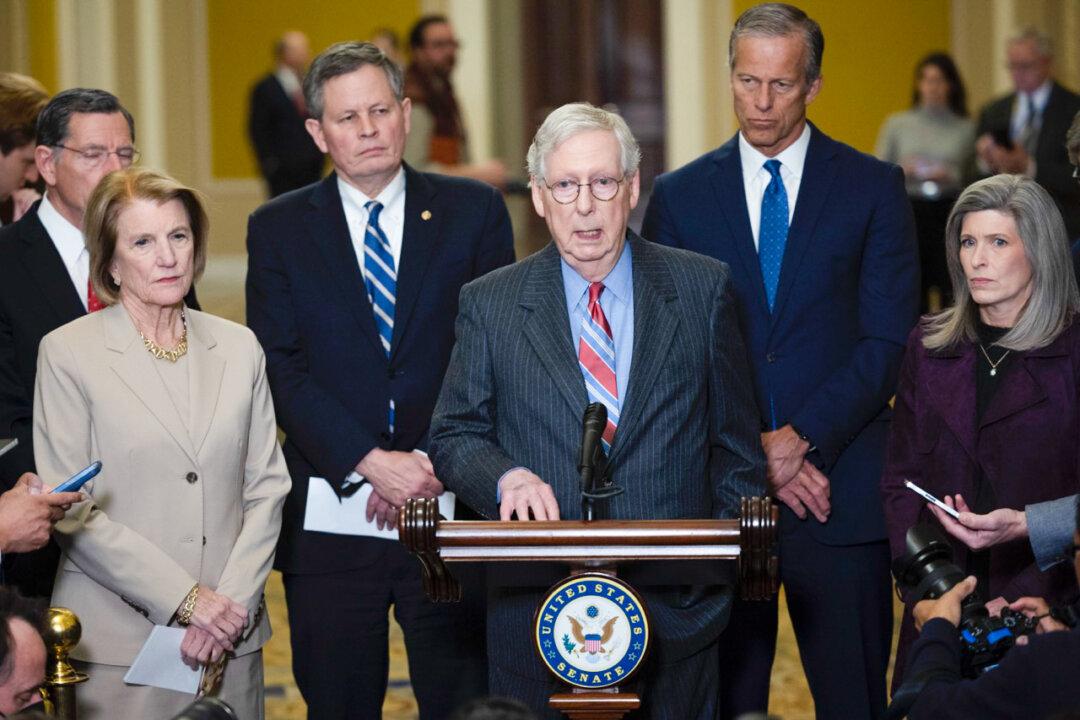A group of 43 Republicans in the U.S. Senate said on May 6 that they “oppose raising the debt ceiling without substantive spending and budget reforms,” coalescing around their House counterparts ahead of the White House meeting over the federal debt ceiling amid a monthslong political standoff.
“The Senate Republican conference is united behind the House Republican conference in support of spending cuts and structural budget reform as a starting point for negotiations on the debt ceiling,” the group of Republicans, led by Sen. Mike Lee (R-Utah), said in a letter addressed to Senate Majority Leader Chuck Schumer (D-Calif.).




